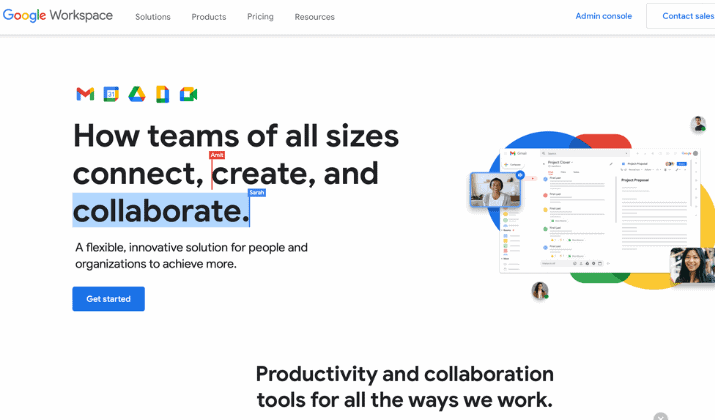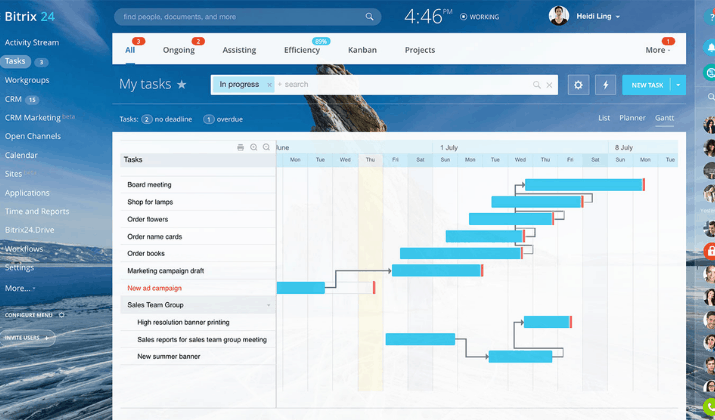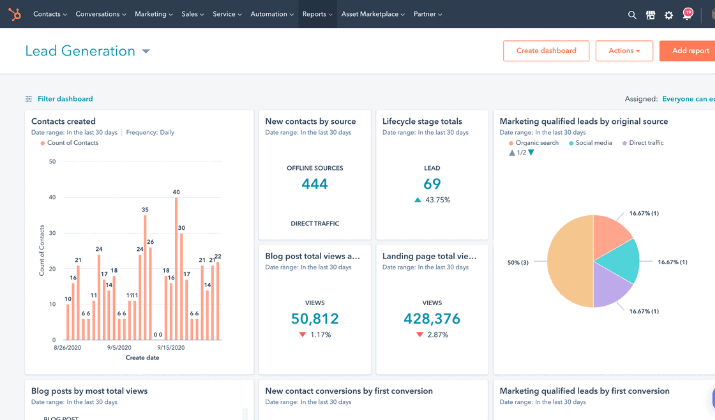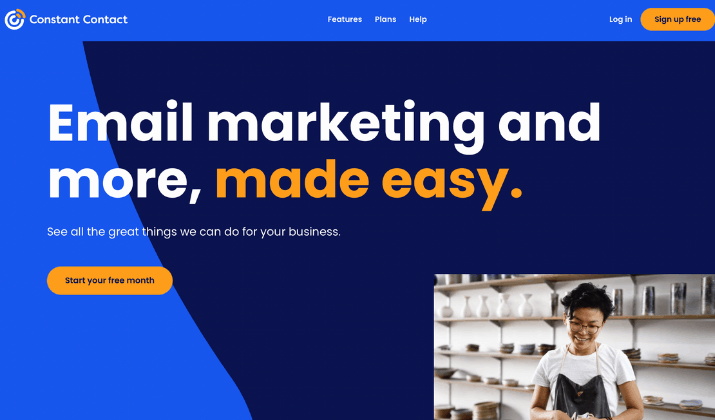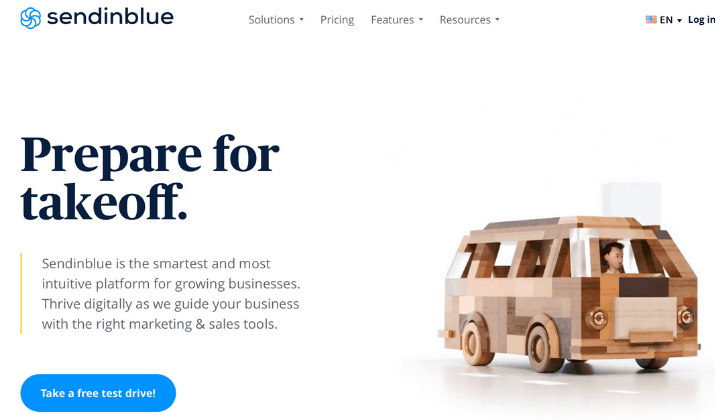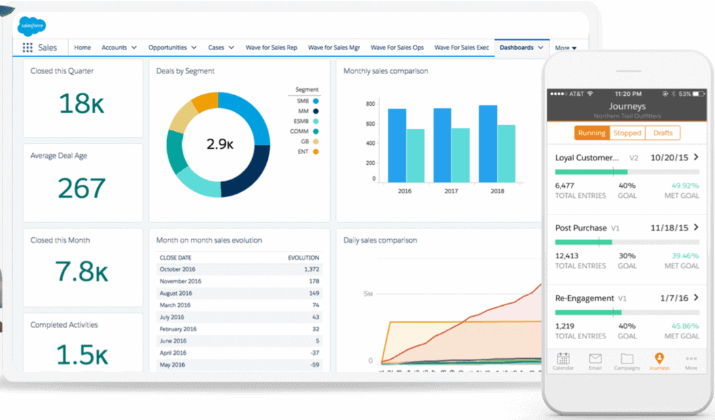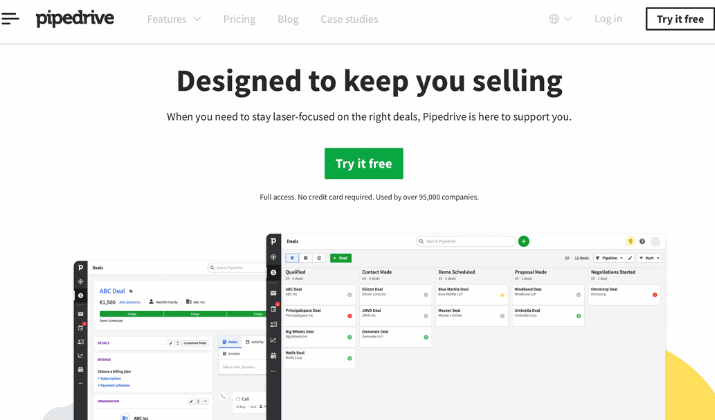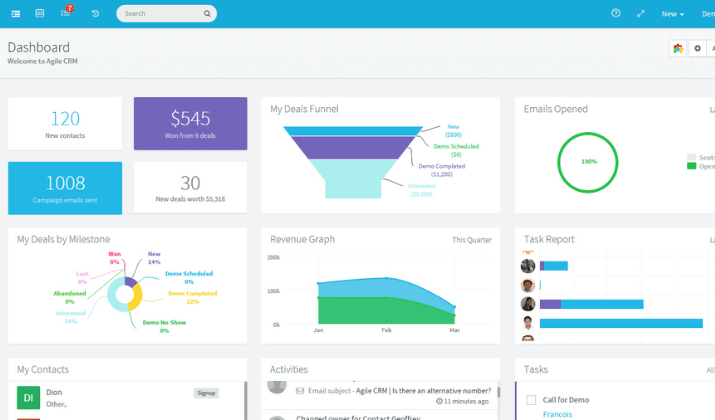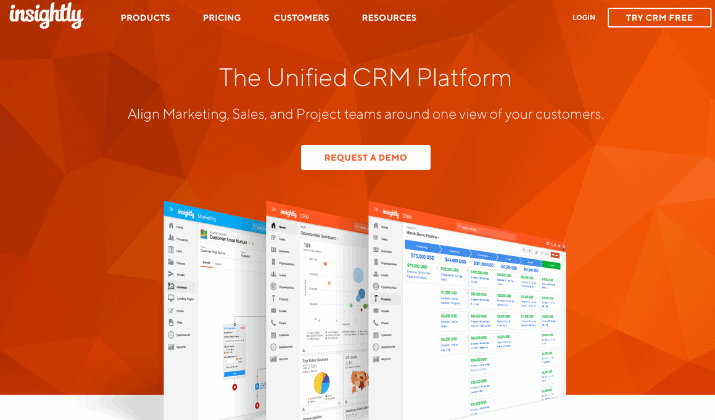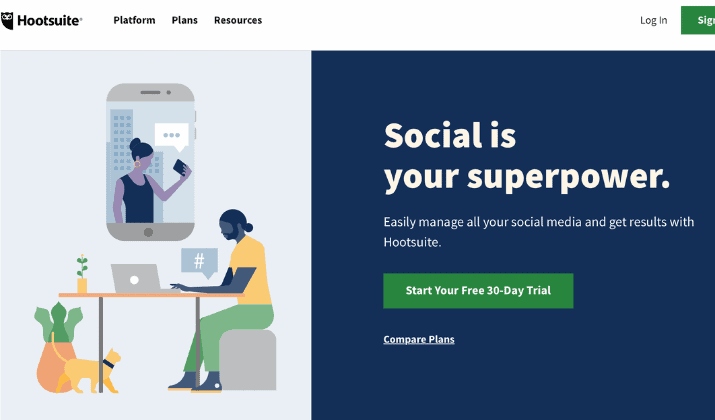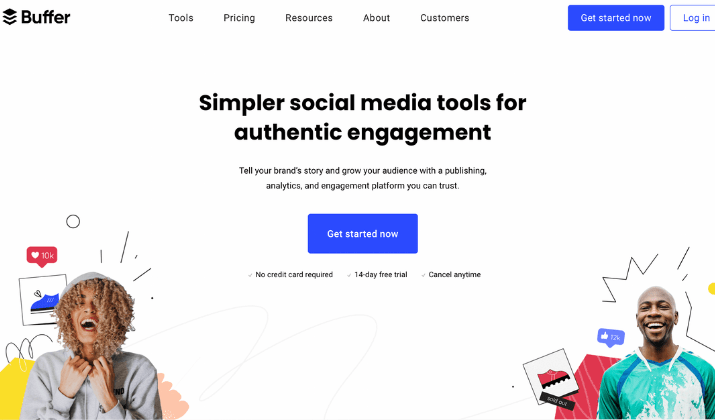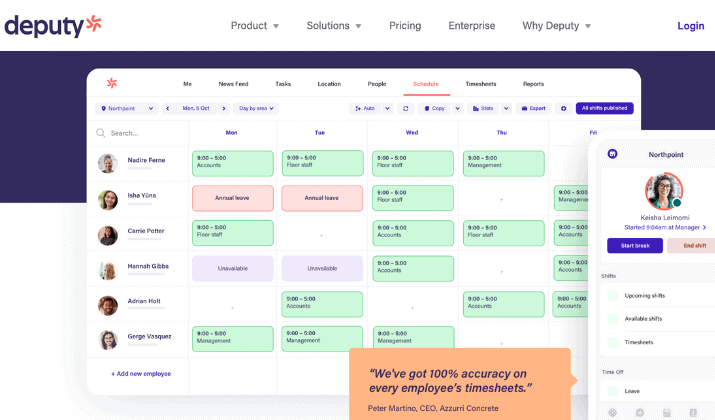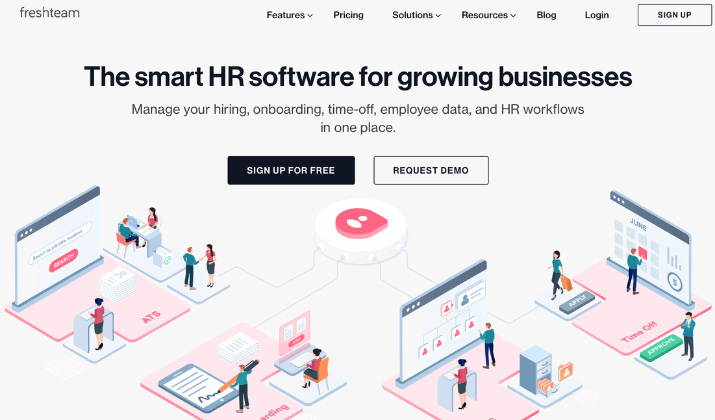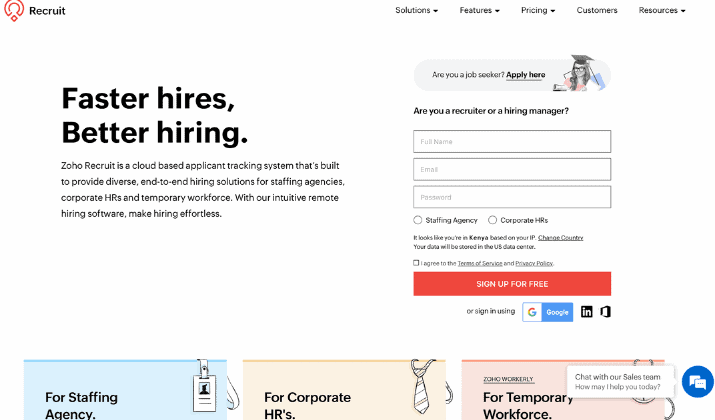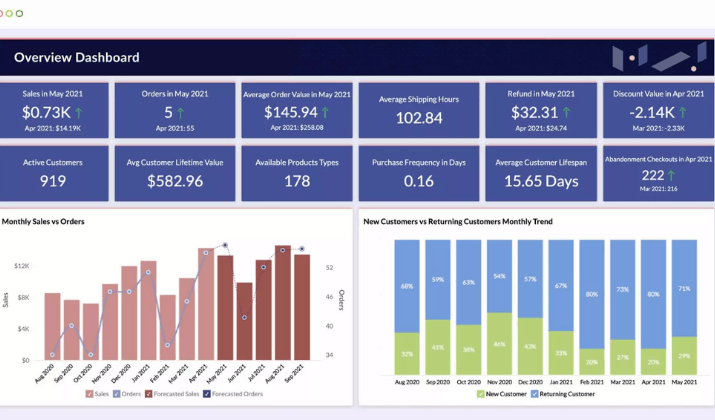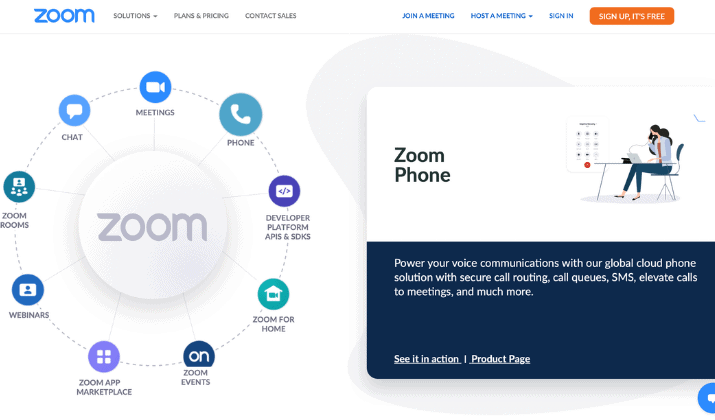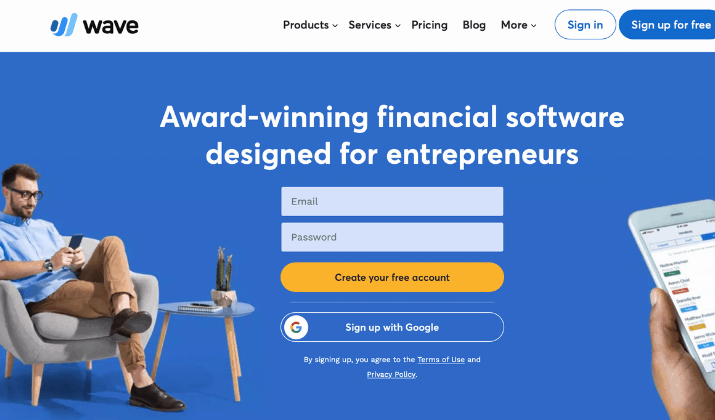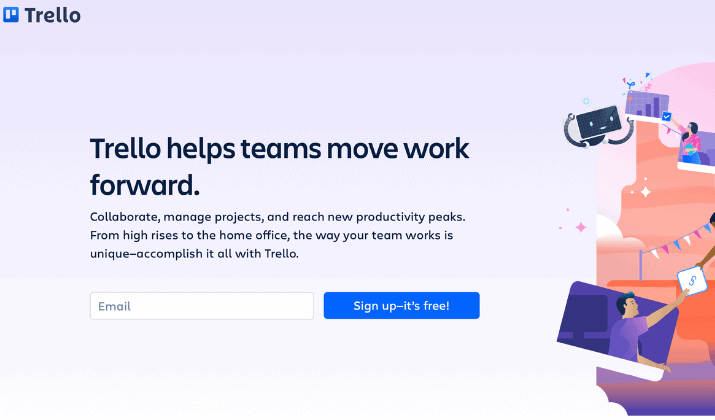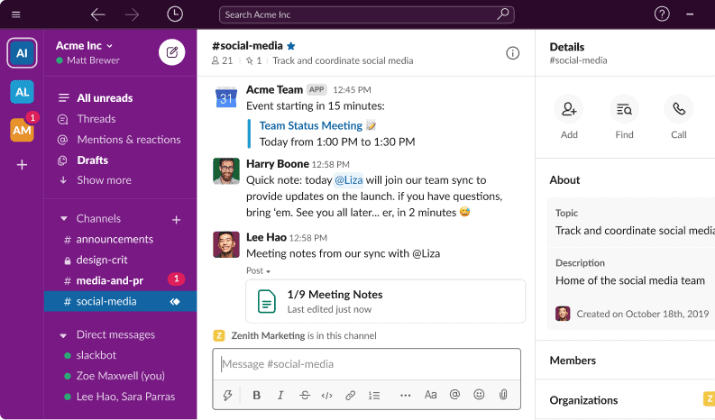The average entrepreneur spends about 68 percent of their time handling everyday tasks. Of that, only 32 percent of that goes into strategic planning, long-term goals, and other tasks that help them grow their businesses.
For some businesses, the operating budget and their teams are small. Consequently, they may not be able to afford the systems and tools that will help them streamline their business operations.
Fortunately, there are several different types of business software out there that can help business owners reduce admin overhead, improve efficiency, and increase profit margins.
From productivity suites to accounting software and recruitment tools, here are the best business software examples you can use to take care of the business tasks that will help you thrive.
Business Software Examples
Office Suite Software
1. Microsoft 365
Microsoft 365 is an office suite software that offers great benefits including excellent functionality, cloud storage, and you can use it on the go. Microsoft Office is not only familiar, but it works in the cloud, meaning your documents are saved online and you can use it on any device without losing your work.
Depending on the license you buy, you can get programs like Word, Excel, PowerPoint, and Publisher, along with the Outlook email service and OneDrive for cloud storage.
The software is cost-efficient if you have five or fewer employees, but for large teams, you can get the Business Premium license, which comes with SharePoint, Microsoft Teams, and Microsoft Exchange.
Overall, Microsoft 365 delivers everything you need while remaining superior to its rivals in terms of functionality. Plus, you’ll find other contractors and suppliers already using it making it ideal for your business.
2. Google Workspace
Google Workspace, formerly Google Suite, is a collection of online office tools such as document creation, chat, email, cloud storage, video meetings, calendars, and more. With this office suite, you get secure, cloud-based and branded document creation, collaboration, sharing, and storage.
Plus, you don’t have to pay for expensive software or worry about everyone having the same device just to run the software.
Each tool in the software suite is by Google meaning you can seamlessly move from one app to another.
You can use Gmail to create a branded email address and then use Calendars for team scheduling, Docs, Slides, and Sheets for creating documents, presentations, or spreadsheets. All these come with real-time collaboration.
Also included is Google Drive for storing documents in the cloud, Google Meet for video meetings, and Google Chat for team messaging.
Besides app integration, Google Workspace allows you to connect third-party tools including Trello, Zoom, Salesforce, DocuSign, and Asana among others with minimal data access.
3. Zoho
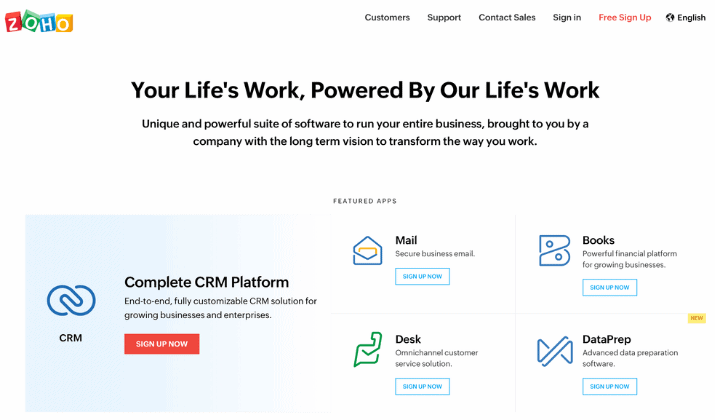
In addition, the apps and tools integrate with each other, as well as with other business software platforms. Thus, if you need to do something, most likely you’ll find software to do it through Zoho.
4. Bitrix 24
Bitrix 24 is a full suite of powerful tools for business that you can use for collaboration, project management, instant messaging, scheduling, document handling, employee management, and more.
The software suite comes with a capable customer relationship management (CRM) tool with detailed reports. The CRM also logs contacts and communications, leads assigned to your sales teams, emails your team has sent out, call records, quotations, and invoices issued.
You can conveniently access detailed reports to stay up to date with your business activities through the mobile app.
Sales and Marketing
5. HubSpot Marketing Hub
HubSpot is a sales and marketing platform that offers a slew of tools and integrations to help you improve conversions. Among the tools include sales and marketing, content management, and social media advertising.
The platform does this by providing options for content hosting, split testing, and communications within your team and with customers. You also get targets and goals you can track using its analytics software.
The software integrates with popular software including Salesforce, Microsoft 365, and Google Workspace.
6. Optimizely
Optimizely helps you boost your marketing return on investment (ROI) so that you can get the most out of your marketing campaigns. The software tests your targeted messaging and assists you to personalize your marketing campaigns.
On top of that, Optimizely runs constant split and multivariate testing. You get features such as activity tracking, visual editing, workflow experimentation, visual editing, and marketing experiments.
Email Marketing
7. Constant Contact
Constant Contact allows you to create email campaigns and track the results of your campaigns in real-time. The platform has an intuitive drag and drop email builder so you can create good-looking and on-brand emails without any coding knowledge.
You can add images, text, coupons, videos, polls, and events to your email messages. Coupled with that, you get over 100 pre-built mobile-optimized email marketing templates and you get to see metrics like subscriber data, click-through, and open rates.
Among its key benefits are that you can trigger welcome messages especially for new subscribers; and based on their actions, you can set up drip campaigns.
8. Sendinblue
With Sendinblue, you can grow your business through its fully automated email marketing solution. You can optimize your email marketing campaigns using its drag and drop editors plus automation.
Sendinblue also offers landing pages, sign-up forms, Facebook ads, and retargeted ads for lead nurturing to help your business grow even more. Plus, the software helps you cultivate an audience, leads, and customer growth.
An intuitive email builder is included with a drag and drop editor so you can create the look and feel you want in your emails.
9. MailerLite
This email marketing software is ideal for anyone who seeks a simple and straightforward way of doing email marketing – minus the bells and whistles. You also get the usual features like landing pages, surveys, popups, and other automation tools so you’re not limited as such.
The drag and drop editor makes it easy for you to design high-quality images, segment subscribers, and optimize campaigns using split testing and other features. This way, you can enhance personalization for your subscribers.
Customer Relationship Management
10. Salesforce
Salesforce is a leading sales software for different business types and sizes. The all-in-one platform is focused on bringing customer sales and relationships together.
You can improve key metrics across your processes, including your CRM and sales channels making it easier to sync between them and achieve better efficiency in your business.
The cloud-based platform makes it easier for business owners to use it, as it comes with benefits such as cheaper hosting, easy scalability, more security, and speed of running the CRM.
Salesforce keeps expanding its range of products with extra features and more third-party apps. You can pick what you need from eCommerce to analytics, B2B marketing automation, and more.
The beauty about combining Salesforce apps is that you get to realize improved efficiency. The software is suitable for businesses that can invest money and time into getting the most out of their CRM software.
An active peer support community is included in case you need help, but you also get on-call expert support for higher-priced plans.
11. Pipedrive
Pipedrive is another great CRM software that you can use, especially if you’d rather not deal with the learning curve in Salesforce. The platform is simple, clean, and easy to pick up and use right away.
You get customer support around the clock, which is rare among typical CRM platforms, plus features like lead generation, email marketing, and data analysis among others.
The CRM is ideal for small businesses and marketing teams so you can invigorate your lead generation efforts while maximizing your sales.
The sales management tool visualizes your sales pipeline and ensures that important conversations and activities aren’t dropped.
It’s also intuitive and you won’t need to nag your team to use it. Plus, you get built-in forecasting, a powerful API if you like to roll your own software solution and integrations with Zapier, MailChimp, and Google Apps.
12. Agile CRM
Agile CRM is a full-service CRM with sales tracking, web analytics, contact management, marketing automation, two-way emails, helpdesk, telephony, and a clean, modern interface.
The CRM allows you to automate your sales, marketing, and customer retention process through a simple and powerful drag and drop editor.
You can also convert your website visitors into leads within the CRM, nurture, track and score leads based on email and web activity, and enable multi-channel communication. You can call, email, or tweet to contacts from one page.
Agile CRM also lets you monitor customer behavior and receive alerts in real-time about customer activities. Plus, you can manage your helpdesk tickets in one place complete with all customers’ history.
The platform also gives you a detailed record of all your customers’ details and communication history on one page in chronological format. You also get customer data delivered from other business apps via extensive integrations.
The top-rated CRM is affordable to use and has a gamification feature that encourages team competition and collaboration to boost sales along the way. You also get features like custom appointment calendars, email reports, drag and drop automation, plugins, and widgets.
13. Insightly
Insightly is an all-around cloud-based software that brings CRM, marketing, and project management together in one platform. The tool is geared towards businesses that want to intertwine marketing tools and sales capabilities.
You can organize all your leads and sales in a single platform and get important insights from Insightly’s analytics tools.
One of its standout features is lead routing, which tracks important details about your leads such as phone calls, marketing campaign sources, and tasks. The software sends leads to the right sales team or person on the team automatically so that they follow the lead before it goes cold.
Other features include project activity and performance tracking against milestones, besides managing your leads, organizations, vendors, partners, contacts, and suppliers.
Social Media Listening
14. Hootsuite
Hootsuite is a social media listening platform that’s easy to use and allows you to get updates on what your target audience and customers are saying. The software helps you manage multiple social networks, interact with followers, and most importantly, schedule your posts.
You can also track how many followers you have on your social media pages and networks, the posts that generate the most clicks, shares, likes, comments, and highest engagement.
You can view and respond to all your comments, messages, and brand mentions across your social channels in one dashboard. You can also track leads and influencers in lists, which you can import and share with your team.
Hootsuite also allows you to customize your social media campaigns to optimize your content engagement, measure success across platforms, and monitor social media activity.
Plus, you can add one of the many social network integrations that work with Hootsuite and view them from the platform’s interface.
15. Buffer
Buffer is another social media listening tool that creates an omnichannel experience for your community and social media teams.
The tool helps you find important conversations easily, join in on conversations, and delight your audience. You can post content and directly engage in the replies from a centralized dashboard via a team-shared inbox.
Among its powerful features include a story monitoring feature for recording and analyzing your stories on social media channels. Plus, you can plan effective social campaigns through the schedule and publish features and monitor your team’s performance through measuring audience behavior and engagement.
You can also integrate social platforms such as Facebook, LinkedIn, Twitter, Pinterest, and Instagram, which Buffer supports.
Human resource management
16. Deputy
Deputy is an HR management tool that helps you track the new hire’s progress after recruitment and onboarding. The software allows you to schedule employee shifts, manage tasks, and make company announcements from a single platform.
You can also access timesheets and payroll integration if you pay up front for the premium packages.
17. Freshteam
Freshteam is a part of Freshworks, which develops sales, communication, and marketing tools. The software lets you manage hiring, onboarding, employee information, and time-off.
As a hiring software, you can hire new employees in an affordable and easy-to-use online platform.
The applicant tracking system feature makes it easy for you to post job opportunities, screen applicant resumes, track the applications and applicants, and even send offer letters. You can access job description templates and post jobs for free on job boards including Glassdoor, ZipRecruiter, LinkedIn, and Adzuna.
You can also create custom workflows and track applicants from the application stage to the interview and finally the hiring stages. Plus, you can convert your emails into applications and have the senders as applicants.
Once you hire someone, Freshteam will send them all the paperwork they need to sign digitally, plus internal documents like employee handbooks and a welcome letter.
18. Zoho Recruit
This tool tracks applicants and allows you to input, publish, and track jobs until you can find the right person for the job and for your company’s needs. The tool is ideal for small businesses that lack job openings.
You can send emails to job applicants for free using email templates that make it easier especially where you have to send similar or the same messages multiple times.
Business Intelligence
19. Zoho Analytics
Zoho Analytics is a feature-rich, robust, and easy-to-use software that takes data from various sources and blends them together to give you a visual report and dashboard. From here, you can view the health of your business across departments and share and collaborate online with department heads and colleagues.
Plus, you can add comments, set up alerts when something out of the ordinary occurs or an anomaly, and connect it to any data source. It can pull data from Excel, JSON, HTML, Google Drive, and web URL feeds.
You can also upload data from your email software, CRM, local and cloud databases, and accounting software among other tools.
Video Conferencing
20. Zoom
Zoom is a popular video conferencing platform that’s known for making it quick and easy to communicate with teams regardless of device or location. The collaborative software offers features such as breakout rooms, in-line transcription and translation, hand-raising, and Q&A features.
The software offers extensive support for other platforms, a slew of integrations, ease of use, and a free tier you can use for your personal and business video calls alike.
Part of its appeal is that it’s fairly easy to use on mobile devices and computers. It also allows participants to join with phone numbers, codes, and hyperlinks.
It takes just seconds from creating your meeting to inviting guests and them clicking on the link to join.
Accounting
21. Wave Accounting
Wave was created in 2010 and since then, it has risen up the ranks to become one of the best accounting software. You can track your income, track expenses and sales taxes, send invoices, and scan receipts for free to keep your books balanced.
You can connect multiple bank accounts and cards and set up multiple business profiles to track your income and expenses. The software organizes your accounts, invoices, and payments, making taxes easier and you get robust reports so you can identify trends in your cash flow.
You can also set recurring invoices and automatic payments from credit cards for your loyal or repeat customers. Wave also syncs invoice and payment information automatically.
A mobile app is included that allows you to scan receipts anywhere, and you can seamlessly sync them with your Wave account to track your expenses.
Project Management
22. Trello
Trello is a Project management software that uses a Kanban-style board to help you track your tasks and projects. The software has a simple and intuitive interface that makes it easy to manage ongoing and project workflows.
You can create custom boards and lists with cards that include files, images, checklists, links, and due dates, among other elements.
Trello integrates with Google Drive, Slack, Dropbox, and other third-party apps for streamlined workflow and collaboration.
Team Communication
23. Slack
Slack has helped transform how businesses keep in touch. In fact, it’s become the tool that over 12 million people open first thing in the morning to start their workday, besides being the leading team collaboration software.
The tool simplifies work and boosts your team’s productivity. Plus, it allows your team to chat one on one or in groups and offers channels around different topics like sales, products, finances, and even waterhole discussions.
The software offers real-time messaging in web browsers, desktop clients, and mobile apps. It’s intuitive, packed with plugins and extras, and has collaboration capabilities for teams.
You can also search through mentions, conversations, and users so you don’t have to sort through emails or written notes to find valuable pieces of information.
Wrapping Up
We’ve barely scratched the surface on all the business management software examples, but these are the very basic ones you can begin with.
Whether you’re a freelancer, small business, or enterprise, you can still use these tools to help you handle some of the pain points in your business.
The tools help you manage your people, finances, processes, and relationships while improving cash flows and workflows, which would otherwise have cost you much in terms of money and time.
Tom loves to write on technology, e-commerce & internet marketing.
Tom has been a full-time internet marketer for two decades now, earning millions of dollars while living life on his own terms. Along the way, he’s also coached thousands of other people to success.

